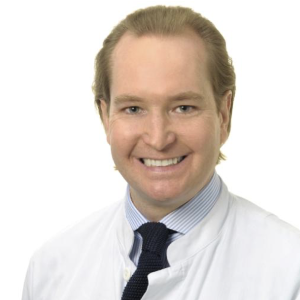What AI can really do
9 Dec 2024
Where is artificial intelligence heading? LMU researchers on the use and limits of the technology.
9 Dec 2024
Where is artificial intelligence heading? LMU researchers on the use and limits of the technology.

Prof. Dr. Michael Ingrisch
Artificial intelligence (AI) is considered a key technology as it enables a wide range of applications. It has already arrived in everyday life. For example, it is behind translation tools, language robots and is used in medicine.
What challenges are associated with the technology? What is important for further development? Scientists from various disciplines at LMU will shed light on the following aspects:
Can Dr. AI diagnose better than human doctors?
"For radiologists at the Clinic and Polyclinic for Radiology, artificial intelligence has been part of everyday clinical diagnostics for years. Using a fully integrated AI platform, various algorithms for automated image analysis of X-rays, computer tomography and magnetic resonance imaging provide diagnostic information in real time to support doctors in their diagnosis.
The detection of bone fractures or lung metastases is just as much a part of the wide range of applications for AI algorithms at LMU Hospital as the diagnosis of breast or prostate cancer. As part of the clinical supply of the mobile CT scanner at the Munich Oktoberfest 2024 by the Clinic and Polyclinic for Radiology, the radiologists were also supported by an AI algorithm in the diagnosis of cerebral hemorrhages.
The results of an accompanying prospective study showed that the diagnostic certainty in the diagnosis of cerebral hemorrhage was significantly higher using the AI algorithm as a second opinion. AI can make a valuable contribution in such narrowly defined areas of application, especially as a second opinion in the background. AI supports radiologists in further improving diagnostic accuracy by pointing out abnormalities, which then contribute to optimized diagnostics by incorporating all clinical information.AI acts as a supporting tool and complements human expertise - the final diagnosis remains in the hands of experienced doctors."
For radiologists at the Clinic and Polyclinic for Radiology, artificial intelligence has been part of everyday clinical reporting for years.PROF. DR. MED. CLEMENS CYRAN AND PROF. DR. MICHAEL INGRISCH

Prof. Dr. med Clemens Cyran
Prof. Dr. med. Clemens Cyranis Managing Senior Physician at the Clinic and Polyclinic for Radiology at the LMU Clinic.
Prof. Dr. Michael Ingrisch is Head of Clinical Data Science at the Clinic and Polyclinic for Radiology at the LMU Clinic.